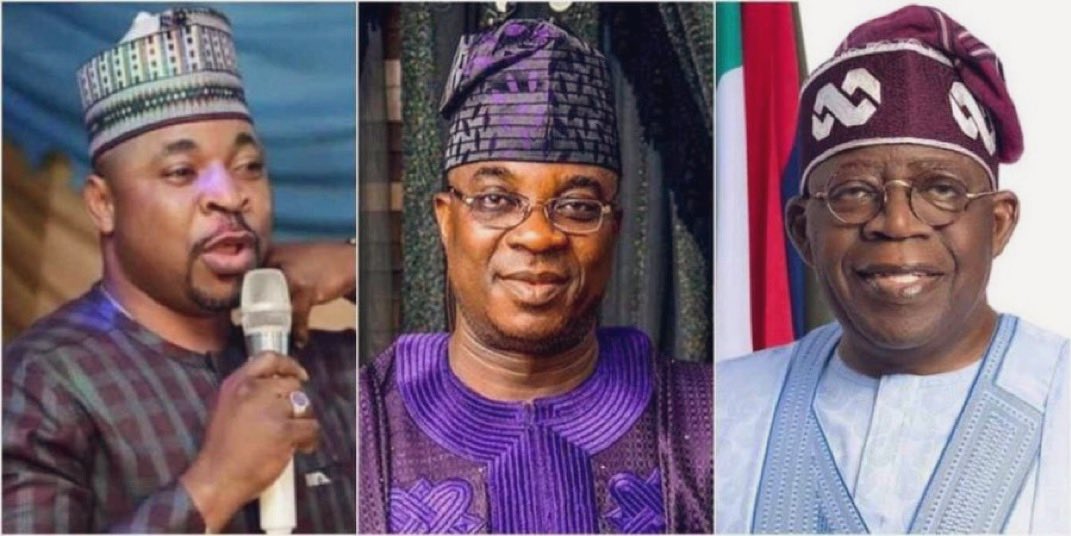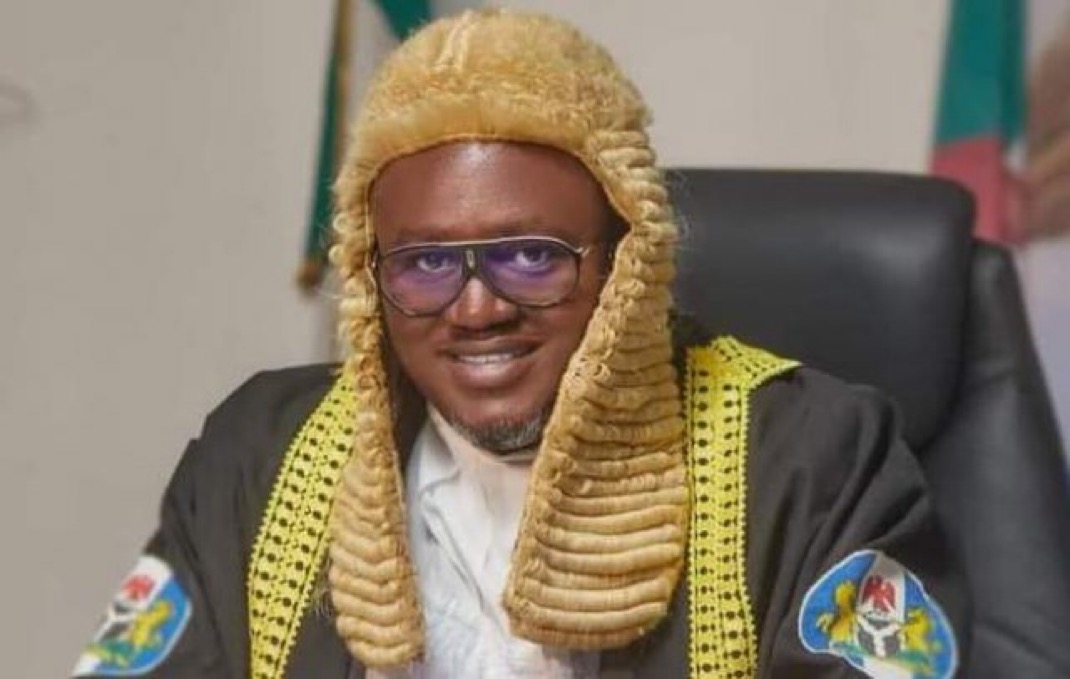
MC Oluomo Pleads with President Tinubu and Festus Keyamo to Lift Flight Ban on Kwam 1

In a passionate plea that has stirred conversation across Nigeria’s entertainment and transport sectors, Lagos State Parks and Garages Chairman, Musiliu Akinsanya, popularly known as MC Oluomo, has publicly appealed to President Bola Ahmed Tinubu and Minister of Aviation and Aerospace Development, Festus Keyamo, to intervene in what he describes as an unfair situation—the flight ban reportedly placed on Fuji music icon, King Wasiu Ayinde Marshal, famously called Kwam 1.
The transport union boss, who is known for his influence in Lagos politics and his strong ties to the entertainment industry, made his appeal through a heartfelt message that quickly gained traction on social media, drawing reactions from fans, stakeholders, and political observers.
MC Oluomo expressed deep concern over the alleged ban, noting that Kwam 1 is not just an entertainer but a cultural ambassador whose contributions to Nigerian music, culture, and international recognition are too significant to be undermined by what he considers a regrettable restriction. His statement, laced with emotion, emphasized that Kwam 1’s music has been a source of joy, unity, and pride for Nigerians at home and abroad for over four decades, making him a national treasure who deserves protection rather than punishment.
According to reports making the rounds, the restriction has prevented the Fuji legend from boarding certain flights, sparking speculation about the cause of the ban and the events that might have led to it. Neither the Ministry of Aviation nor the presidency has yet issued an official statement clarifying the circumstances surrounding the matter, leaving a cloud of uncertainty and curiosity among the public. This silence has, in turn, fueled online debates, with some Nigerians demanding transparency and others calling for immediate government intervention to end the controversy.
MC Oluomo, in his plea, reminded the authorities that Kwam 1 has been a consistent supporter of government initiatives and a voice of stability within the entertainment world. He recounted how the Fuji maestro has performed at national events, used his platform to promote unity, and has never shied away from using his music to uplift the image of Nigeria internationally.
He urged President Tinubu, whom he described as a leader with a track record of protecting Nigerian culture, to step in and ensure that Kwam 1’s reputation and career are not tarnished by what he sees as an avoidable dispute.
Speaking directly to Festus Keyamo, the Minister of Aviation, MC Oluomo appealed for a review of whatever policies or incidents might have led to the ban, stressing that the aviation industry must also be seen as a supporter of cultural exports rather than an obstacle to them. He painted the picture of a nation where music icons like Kwam 1 are given red carpet treatment at airports instead of being restricted from travel.
The reaction to MC Oluomo’s intervention has been mixed. Supporters of Kwam 1, many of whom have followed his career since his early days in the Fuji scene, have praised MC Oluomo for speaking out, saying it shows loyalty and respect for Nigerian cultural icons. They argue that musicians of Kwam 1’s caliber should be celebrated, not hindered, as they often act as informal ambassadors who promote the country without government funding.
Critics, however, have raised concerns about the lack of concrete details surrounding the ban, pointing out that before such appeals can be effective, there should be clarity on whether the issue is administrative, security-related, or personal. Some even suggested that if the restriction stems from a breach of aviation regulations, the matter should be resolved within the legal framework without political interference.
Despite these divergent views, the conversation has shone a spotlight on the often-overlooked relationship between Nigeria’s cultural icons and government policies, especially in sectors like aviation, which play a critical role in international mobility for entertainers. As the days pass without an official statement from the relevant authorities, the pressure on the government to respond grows. For many, this is not just about one man’s ability to fly; it is about what such a restriction says about how Nigeria values its cultural heritage and those who keep it alive.
Kwam 1, whose real name is Wasiu Ayinde Marshal, is a living legend in the Fuji genre, credited with modernizing the music style and expanding its audience beyond Nigeria’s borders. His work has earned him awards, international recognition, and a devoted fan base spanning generations.
Known for his elaborate stage performances, mastery of live instrumentation, and lyrical depth, he remains one of the few Nigerian artists who can fill concert venues both locally and internationally without relying on heavy media promotion. For an artist of his stature, mobility is not just a personal convenience but a professional necessity. Restrictions on his ability to travel could have significant implications for his career, earnings, and the wider Fuji industry, which still relies heavily on live performances.
MC Oluomo’s involvement adds another layer of complexity to the matter. As a figure who commands respect in both political and grassroots circles, his public stance sends a clear message to the authorities that the issue is being closely watched not just by fans but by influential players in Lagos and beyond. In a country where entertainment and politics often intersect, his call to action might just be the catalyst needed to bring the matter to the president’s desk. Whether or not it will result in the lifting of the alleged ban remains to be seen, but the appeal has undeniably thrust the matter into the national spotlight.
This incident also raises broader questions about the criteria for imposing travel restrictions on individuals in Nigeria and the level of transparency in such processes. In the absence of official communication, speculation thrives, and public trust in government decision-making can be eroded. For many Nigerians, especially those in the creative sector, the hope is that this case will lead to clearer guidelines and more open dialogue between regulators and artists, ensuring that the movement of cultural ambassadors is not hindered without just cause.
As the story continues to unfold, fans of Kwam 1 are waiting anxiously for news, flooding social media with hashtags and messages of solidarity. Concert promoters, event organizers, and industry stakeholders are also watching closely, aware that prolonged restrictions could disrupt planned shows and affect business. MC Oluomo’s plea has struck a chord, not just because of his influence but because it speaks to a deeper truth—that in Nigeria, music is more than entertainment; it is a bridge between communities, a tool for diplomacy, and a source of national pride.
The coming days will be crucial in determining whether this matter fades quietly or becomes a landmark case in how Nigeria handles the travel rights of its cultural icons. Until then, the ball is in the court of President Tinubu and Minister Keyamo, whose response—or silence—will send a powerful message about where the government stands on the intersection of aviation policy and cultural diplomacy. For now, the hope among millions of fans and cultural advocates is that the voice of MC Oluomo, echoing through the streets of Lagos and across Nigeria’s digital landscape, will be loud enough to bring about a swift and favorable resolution for the man who has spent his life singing Nigeria’s story to the world.


